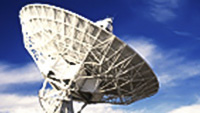Search and order online
Why Explore Other Planets?
- Video Tape only
- Title Why Explore Other Planets?
- Released: 29/06/2002
- Language English
- Footage Type
- Copyright ESA
- Description
There are many reasons to explore the other planets and the smaller bodies in our Solar system. Studying these may actually give us answers on questions about the history of our own Earth. Whereas stars other than the Sun are too far away to reach them, man-made space probes can travel throughout our solar system.
This programme is the first in a series of three programmes on planetary exploration. It outlines the main historic missions to other planets and provides a pre-view of ESA's Rosetta and Smart-1 missions. The two other programmes feature the Huygens/Cassini (Huygens/Cassini - en route to Titan) and the Mars Express missions (ESA's missions to Mars).
The programme includes an A-roll with split audio and English voiceover, and a B-roll with clean international sound.00:38
The blue planet is unique. No other body in our solar system has rivers and oceans of liquid water covering its surface. But why is Earth so different? Is it the only planet fit for life?
00:53
Travelling the solar system, many spacecraft have tried to find answers to age-old questions: for instance, where do we come from and does life exist elsewhere too? Exploring other worlds is the key to a better understanding of our own planet and its current environment. And the missions into deep space are also a journey to the beginnings of our solar system.
01:14
In 1962 NASA's Mariner 2 encountered Venus, a hot planet hostile to life.
01:20
After this first planetary encounter, Mariner and Viking probes were sent to take a close look at Mars. They detected not only a cratered surface but also indications that Mars once may have had liquid water.
01:35
Two Voyager spacecraft encountered the four giant gas planets comprising of: Jupiter and its stormy Red Spot.
Saturn with its ring system.
01:47
Blue-gre


